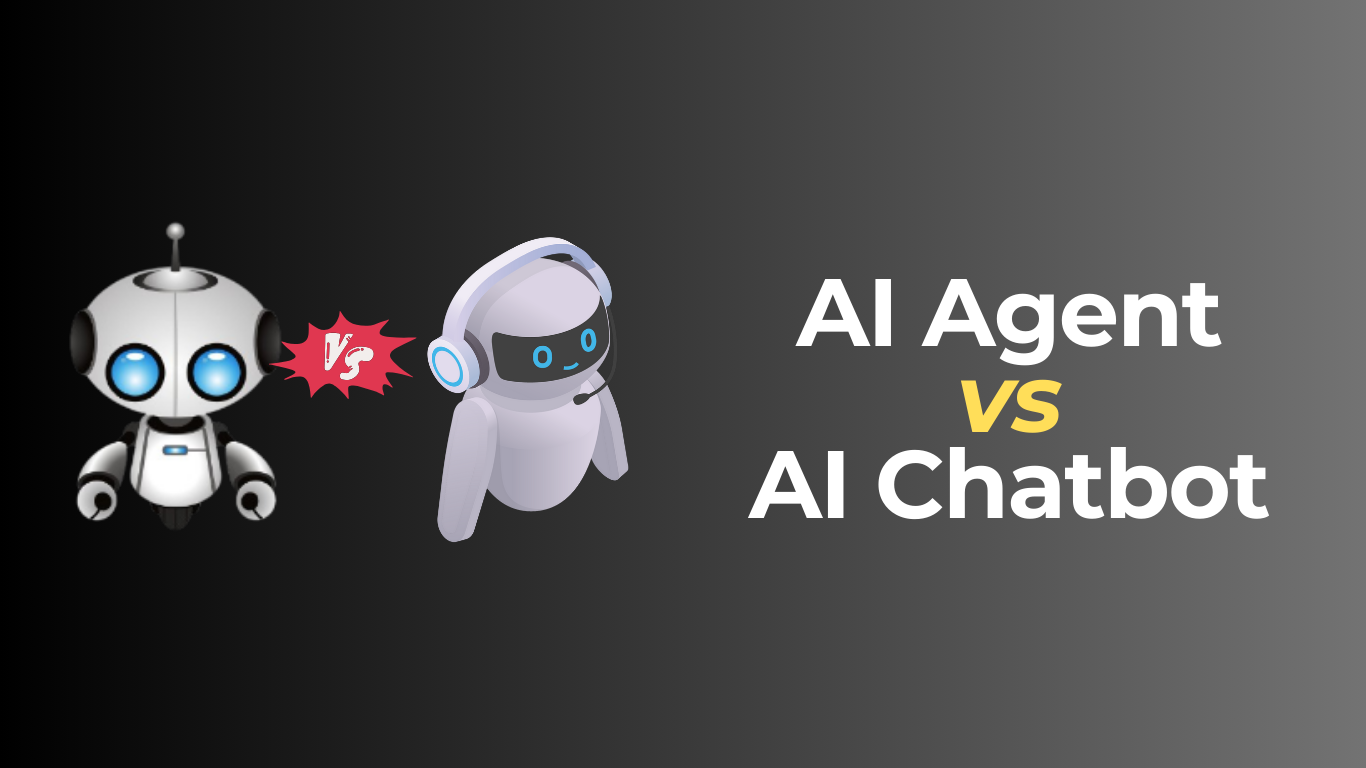AI is transforming customer service by making it quicker and more intelligent. Chatbots and AI agents are the two primary competitors in this AI race. Though in distinct ways, they both assist with customer service. AI agents are the next step up; they can even learn from them and employ intelligent AI to have more organic discussions. Chatbots are easier; they follow a script to respond to frequently asked questions.
Therefore, even if you plan to use the terms interchangeably, it is crucial to know the distinctions between an AI agent and an AI chatbot if you are considering using one for your company.
Let’s examine chatbots and AI agents in more detail. We will examine the differences between them. As companies go toward the future of customer service, this will assist them in determining which option best suits their requirements.
What is an AI Agent?
You can assign duties to an AI agent. It does more than just talk; it acts to assist you in reaching particular objectives. It is capable of making choices, acting, and functioning without your constant direction.
Sorting emails, responding to basic messages, and setting up appointments on your calendar are all tasks that an AI assistant could perform for you.
What is an AI Chatbot?
The purpose of an AI chatbot is to converse with you. It can converse naturally, give information, and respond to inquiries. Typically, specific data or information is used to teach AI chatbots. E-commerce platforms like Shopify stores frequently have these.
If properly taught, they can respond to inquiries about items and function like human customer service representatives.
Chatbots vs. AI Agents: The Key Differences
Following are the main differences between the AI Agents and Chatbots –
Conversational Capabilities
Chatbots and AI agents are in different leagues when it comes to conversation. AI agents can carry on sophisticated discussions that are nearly identical to those held by humans. They can follow the conversation as it changes topics and comprehend not just what you say but also what you truly mean. On the other hand, chatbots follow a script. They might not keep up if you ask a question that isn’t on the script.
Personalization and Learning
Every conversation helps AI bots learn. Because they can recall previous exchanges, every interaction is unique. They seem to learn more about you every time. However, chatbots are incapable of learning or remembering. The interaction feels less personalized and more generic because they consistently provide the same answers.
Integration and Scalability
Though in distinct ways, chatbots and AI agents can both be used in a company’s operations. AI agents may adapt to your demands, becoming more knowledgeable and useful as they gain experience. They are therefore a suitable choice for companies wishing to expand. Although chatbots are simpler to implement initially, as a firm expands, it may require upgrades and modifications to handle more jobs or inquiries.
Operational Efficiency and Maintenance
Because AI agents are intricate systems that learn and change over time, setting them up and maintaining them requires considerable technical expertise. However, by managing a greater variety of inquiries, they can eventually lessen the effort. While chatbots are easier to set up and manage, they may require script modifications to be useful, particularly as your company or goods evolve.
Chatbots vs. AI Agents: Which is best for your business?
Look upon these crucial elements while choosing between an AI agent and a chatbot:
Complexity of tasks
Chatbots are excellent at answering frequently asked questions and performing simple, repetitive chores. AI agents can handle both basic and complicated queries.
Level of personalization
An agent can be a better option if your company needs a high level of customization and comprehension of your customer’s context. Because chatbots follow preset scripts, they usually provide less personalization.
Resource allocation
Developing logic and dialogue trees for chatbots frequently requires a larger initial investment, but if they don’t rely on AI, they can save money. Although the LLM services handle most of the work, agents need less money upfront, but the AI agent needs more data and integration to function.
Customer expectations
Do your clients appreciate easy, fast communication? In that case, a chatbot might be adequate. An AI agent might be a better fit if they anticipate more thorough, individualized assistance.
Scalability and flexibility
Think about how flexible and scalable chatbots and AI agents are. Although both are capable of managing a high amount of queries, agents are able to adjust to a greater variety of circumstances and even gain knowledge from interactions to get better over time.
Long-term strategy
Purchasing an AI agent today may be a better strategic choice if you expect to require more sophisticated customer care capabilities in the future.
Conclusion
Think carefully about your own needs & the process of chatbot & AI agent development. Knowing the distinction between chatbots and AI agents can help your company make a well-informed choice that strikes a balance between short-term demands and long-term objectives. By doing so, you’ll get closer to enhancing customer service and achieving greater business results.



